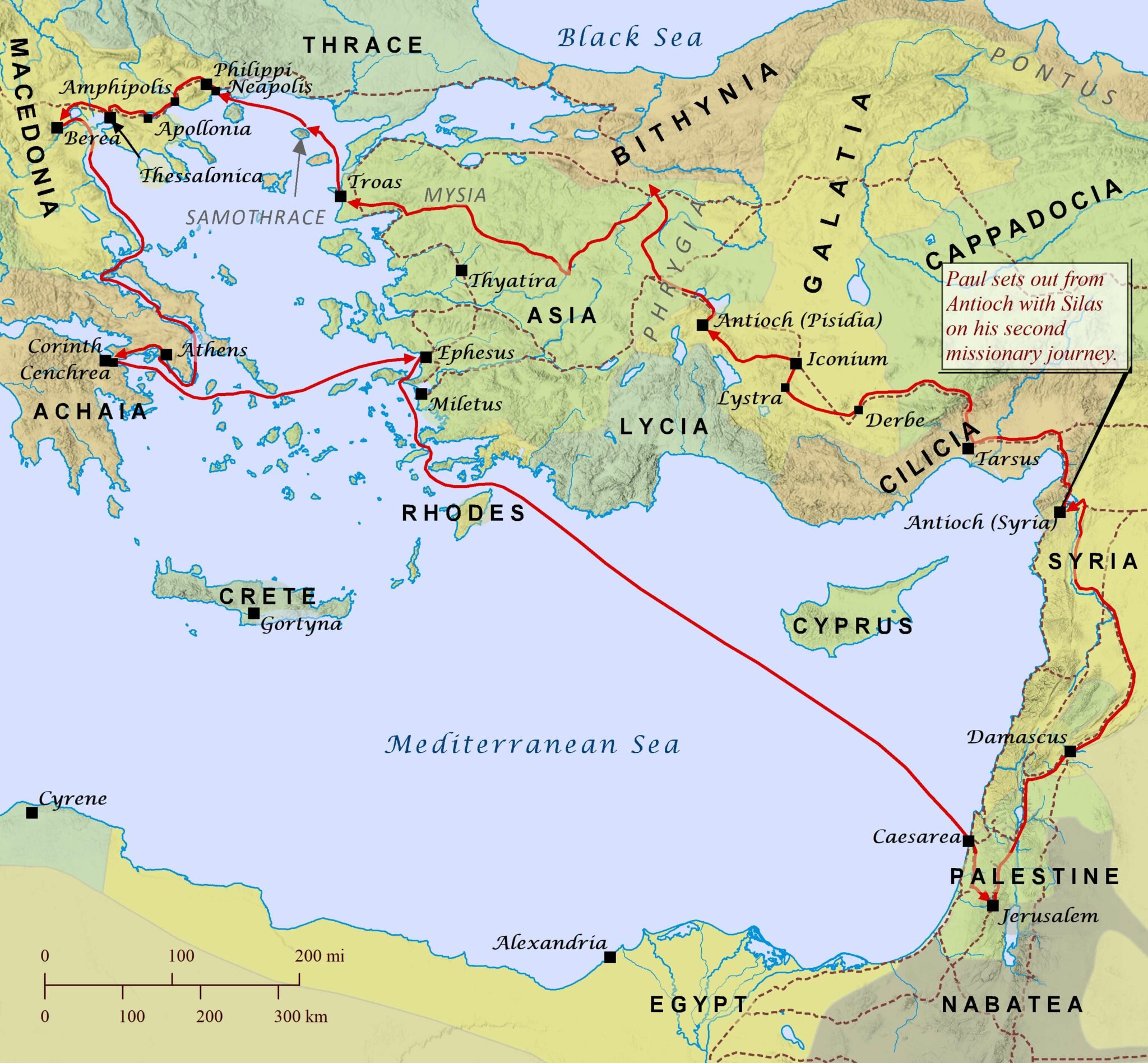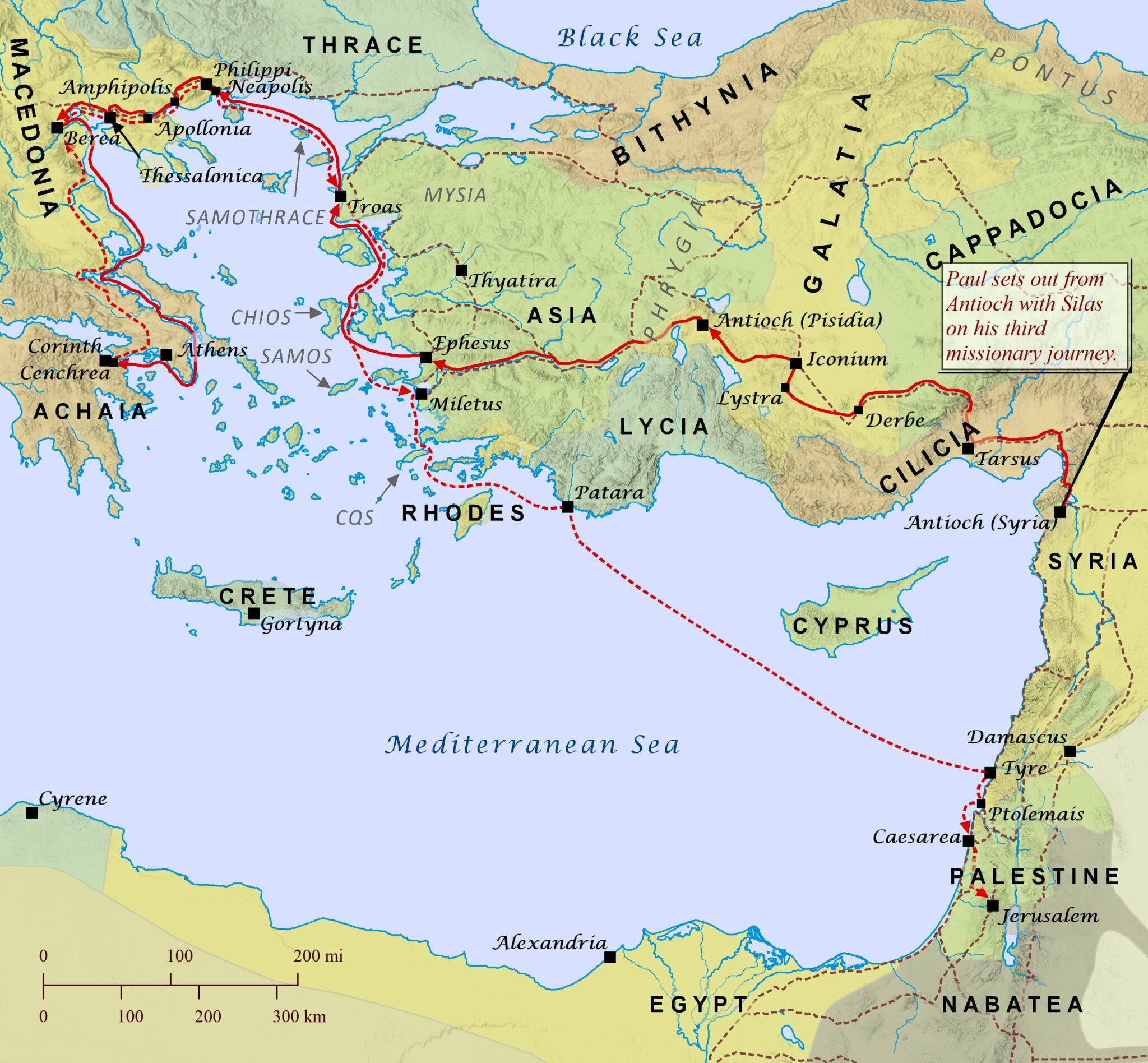Paul requests that Philemon emancipate Onesimus and receive him as a beloved brother.
After Paul informed Philemon that he neither wished to take advantage of his apostolic authority and command Philemon to return Onesimus (Philemon 1:9), nor deceitfully compel his obedience by concealing the fact that Paul was using his runaway slave (Philemon 1:14), Paul invited Philemon to consider God’s perspective:
For perhaps he was for this reason separated from you for a while, that you would have him back forever.
Paul suggested to Philemon that perhaps the reason God allowed Onesimus to run away, was so that he could find Christ and become a member of Jesus’s forever family together with Philemon. Paul did not suggest that Onesimus had this in mind when he ran away. Onesimus was likely only thinking of himself; the reason he separated from Philemon was to escape life as a slave. But in Onesimus’ crime, God was working a wonderful plan that would bless not only the runaway slave but also his abandoned Roman master.
Paul’s suggestion recalls how God used the evil intentions of Joseph’s brothers when they sold him into slavery to be the catalyst for how Joseph would later save his family from starvation as a prince of Egypt:
“As for you, you meant evil against me, but God meant it for good in order to bring about this present result, to preserve many people alive.”
(Genesis 50:20)
Because Onesimus encountered Paul, and from this interaction came to believe in Jesus, he was forever changed. He ran away as a mere slave. But he returned no longer a slave. He was more than a slave. He was a beloved brother.
This touches the epistle’s central themes: the core identity of every believer is as a son or daughter of God. It is who they are in Christ. It is an eternal fact that every believer in Jesus, regardless of their station in life, or what they have done, is a member of God’s forever family. As John wrote in his gospel,
“He came to His own, and those who were His own did not receive Him. But as many as received Him, to them He gave the right to become children of God, even to those who believe in His name, who were born, not of blood nor of the will of the flesh nor of the will of man, but of God.”
(John 1:11-13)
This eternal fact supersedes every temporal relationship we have with other people here on earth. Every neighbor, every coworker, every competitor, every kin, who has believed in Jesus and received the gift of eternal life is more than a neighbor, more than a coworker, more than a competitor, more than our kin. Every believer is our eternal brother or eternal sister in Christ. Our interactions with every believer, including our husband or wife, should be conducted with this awesome fact in mind.
Throughout his epistle, Paul has referred to Timothy, Philemon, and Apphia as brother (Philemon 1:1, 1:7) or sister (Philemon 1:2). But here Paul reminded Philemon of his eternal relationship with Onesimus. As Paul sent Onesimus back to Philemon, Onesimus returned no longer as a slave, but more than a slave. He returned as a beloved brother. This was the same term Paul used to greet Philemon (Philemon 1:1). Paul was essentially telling Philemon that he was to treat Onesimus and hold him in the same regard as Paul treated and regarded Philemon. Paul’s eternal relationship with Philemon was the same as his relationship to Onesimus. They were both beloved brothers to him. And while it was eternally true that Philemon and Onesimus were eternal brothers in God’s forever family, Paul was inviting Philemon to receive Onesimus as his beloved brother.
Paul told Philemon that Onesimus was a beloved brother, especially to me. And he invited Philemon to consider how much more Onesimus was a beloved brother to you.Then Paul added an interesting phrase: both in the flesh and in the Lord. The second part of this qualifier—and in the Lord—is easy to understand in light of the eternal relationships that Paul has been discussing. Philemon and Onesimus are brothers in Christ.
But the first part of this qualifier is not so simple. How are Philemon and Onesimus brothers in the flesh? The Bible gives no indication that they were related. And in Roman society it would have been highly unusual, if not unheard of for a family member to own his own brother as his slave. If they are not blood relatives, what, then, does Paul mean by this remark?
This is likely Paul’s way of asking Philemon to emancipate Onesimus and grant him his liberty. Paul was encouraging Philemon to act upon the eternal fact that Onesimus was his eternal brother in the Lord and to treat Onesimus as if he were his beloved brother in the flesh. In other words, it was an appeal to set him free.
Paul’s comment that Philemon and Onesimus were brothers in the flesh may also mean that they were brothers in the same ministry, serving the gospel of Christ.
Biblical Text
15 For perhaps he was for this reason separated from you for a while, that you would have him back forever, 16 no longer as a slave, but more than a slave, a beloved brother, especially to me, but how much more to you, both in the flesh and in the Lord.
Check out our other commentaries:
-
Deuteronomy 17:8-13 meaning
Moses advises local judges to appeal to the Levitical priests or to the judge in office at the central sanctuary in order to seek guidance...... -
Matthew 18:8-9 meaning
Jesus repeats a metaphor from the Sermon on the Mount warning His disciples that it is better for them to lose part of their body...... -
1 Samuel 8:19-22 meaning
Despite God’s warnings to the Israelites that a king will oppress them, they refuse to listen, and finalize their request for a human monarch. They...... -
Numbers 3:27-32 meaning
The next group considered was the family of Kohath, Levi’s second son. Recorded here are their numbers, their placement in the camp, their appointed leader,...... -
Matthew 4:17 meaning
King Jesus begins His earthly ministry by announcing His Kingdom.......




